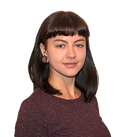An internal memo this week served as a reminder that journalism is as much a science as an art, as our reporters were urged to curtail, or at least keep an eye on, their word counts.
It recalled an acronym employed by an old chemistry teacher while prepping the class for exams: Kiss – keep it short and simple (his other favourite was RTFQ – read the f***ing question).
This is important as there’s an awful lot of news to digest. Who hasn’t read half an article, assimilated the bare bones and moved on? Thank you, next.
In any lab experiment precise volumes are essential and we take the same approach with language. Each word in a news report and in the headlines we sub-editors – the lab technicians in this analogy – slap onto them has value; each must “go to work”.
In journalism 101 you learn the formula for storytelling: “5W + H” (see below). Forget setting the scene; the most important points come first, the minutiae last, as the law of the “inverted pyramid” dictates.
Of course, the technicalities evaporate on the front line. You wouldn’t walk into a newsroom and find reporters dutifully ticking off “who, what, when, where, why and how”. That’s where the art – or craft, as any old hack will tell you – comes in.
The same hack might remember the days when a story was physically cut and pasted to fit a space on the page. The internet has changed the rules. Free from the bonds of print, articles can go on forever – and reader, neither you nor we have time for that.
Balancing the art and science is within a sub-editor’s remit. We must ensure reports are terse without missing vital information; avoid repetition; obey our lord and saviour George Orwell’s rule to never use a long word when a shorter one will do.
We mustn’t be dry but we definitely mustn’t try to show off.
As Bill Bryson’s excellent read The Mother Tongue: English and How It Got That Way sets out, we’ve got a remarkable lexicon at our disposal with which to do so.
Indeed English, with its Germanic roots, romance influences and willingness to beg, steal and borrow from almost everywhere else, is one of very few languages for which thesauruses even exist.
Hopefully that means that in the news lab we can Kiss and make up – our coverage that is – with all the right ingredients to provoke the desired reaction.
Yours,
Jo Turner
Sub-editor

Join our commenting forum
Join thought-provoking conversations, follow other Independent readers and see their replies
Comments